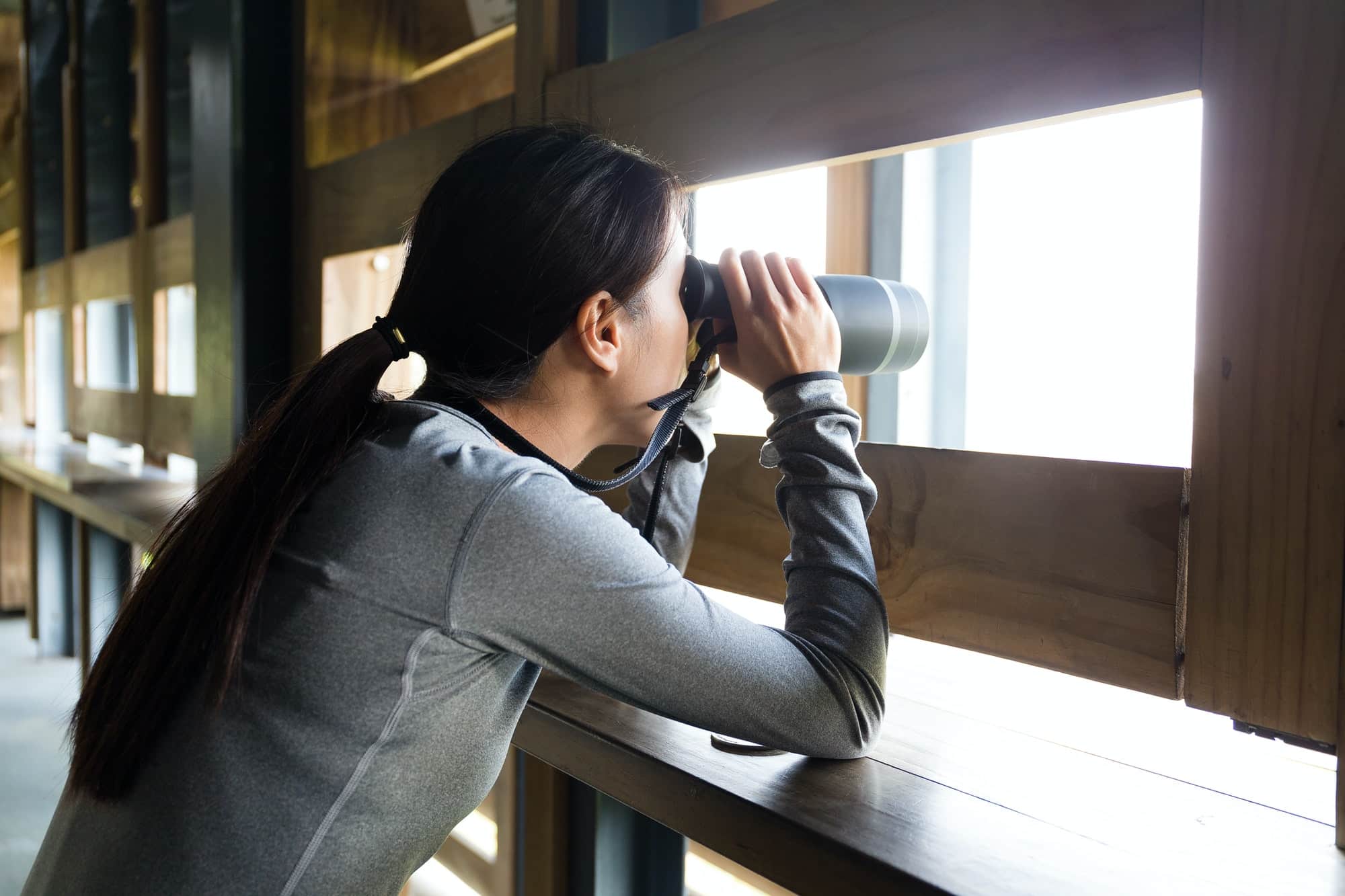Bird watching is an age-old pastime that has attracted the attention of millions of people over the years. Enthusiasts dedicate countless hours, equipped with binoculars and field guide books, in their pursuit to spot and identify various bird species. However, bird watching or birding can be a daunting hobby to break into. There is a wide array of bird species to learn about, different binoculars to choose from, and numerous birding spots to explore. This article aims to provide a comprehensive guide to bird watching in the UK, helping you find a starting point in your birding journey.
Knowing Your Birds
Before you begin bird watching, it is essential to familiarize yourselves with different bird species. This will greatly enhance your birding experience as you will spend less time flipping through your book and more time watching the birds.
Lire également : How to Encourage Local Wildlife Conservation Through Citizen Engagement in the UK?
The UK is home to a variety of bird species. A good bird field guide book can prove to be an invaluable tool in helping you identify these species. There are a number of good bird guide books available that provide information about different species, their habits, and their habitat. The RSPB Handbook of British Birds and the Collins Bird Guide are great resources to start with. These books provide a detailed account of almost every bird species you will encounter in the UK.
In addition to the guide book, there are also various digital resources available that can help you learn about different bird species. The RSPB website, for example, has an extensive database of bird species found in the UK.
En parallèle : How to Cultivate a Thriving Home Garden in the UK’s Varied Climate?
Finding the Right Binoculars
Having a good pair of binoculars can make the difference between a frustrating bird watching experience and a great one. A binocular enhances your view and allows you to spot and observe birds from a distance without disturbing them.
When choosing a pair of binoculars for bird watching, keep in mind that not all binoculars are created equal. Some binoculars are better suited for bird watching than others. Look for a pair that offers a wide field of view, good close focus, and bright, sharp image. You don’t necessarily have to break the bank to get a decent pair of birding binoculars. There are several affordable options available that offer good performance.
The RSPB Avocet Binoculars and the Nikon Prostaff 3S are both good options for beginners. They offer a wide field of view and bright, clear images. If you’re ready to invest in a premium pair, the Zeiss Victory SF and the Swarovski EL are widely regarded as some of the best birding binoculars available in the market.
Picking the Perfect Location
The UK boasts a multitude of bird watching spots. From rural areas to city parks, you can find a variety of bird species almost anywhere. Regardless of where you live, chances are that there is a good birding spot not too far from you.
Some examples of great bird watching locations in the UK include the RSPB reserves, the London Wetland Centre, and the Isles of Scilly. Each of these locations offers a unique birding experience and is home to a variety of bird species.
However, don’t feel that you need to travel far to start bird watching. Your own garden can be a great birding spot as well. By providing a variety of bird foods and a source of water in your garden, you can attract a wide range of bird species right to your doorstep.
Making the Most out of Your Bird Watching Experience
Bird watching is not just about spotting and identifying different bird species. It’s about immersing yourself in nature, appreciating its beauty, and learning from it. Bird watching can be a therapeutic experience if you approach it with the right mindset.
One way to enhance your bird watching experience is to keep a birding journal. Document the species you spot, their behavior, the time of the year, and the location. Over time, this will not only help you learn about different bird species, but it will also help you understand their habits and patterns.
Another way to make the most out of your bird watching experience is to share it with others. Join a local bird watching group or participate in a bird count. This can be a great way to learn from more experienced birders and to contribute to bird conservation efforts.
Remember, bird watching is not a race or a competition. It doesn’t matter how many species you spot or how quickly you can identify them. What matters is the joy, peace, and fulfillment you derive from the experience. So, take your time, be patient, and most importantly, enjoy the journey. Happy birding!
Seasonal Birding: Making the Most of the Year
Bird watching is a year-round activity. Different seasons bring different bird species. Knowing what to expect and when can help you plan your bird watching trips and make the most of your birding experience.
In the UK, spring is a great time for bird watching. During this time, you can witness the spectacle of bird migration. Many species return to the UK to breed. This is also the time when birds are most vocal, making it easier to locate them.
Summer is the breeding season for many species. It’s a great time to observe their breeding behavior and to spot juvenile birds.
In autumn, another wave of migration takes place. Many species leave the UK for warmer regions. This is also the time when a large number of rare vagrants can be spotted.
Winter may seem like a slow time for bird watching, but it actually offers plenty of opportunities. Many bird species gather in large flocks during this time, making them easier to spot. Winter is also a good time to watch birds in your garden as they come to feeders for food.
Understanding Bird Behaviour
Understanding the behaviour of birds will significantly enhance your bird watching experience. By observing and comprehending their habits, you can predict their movements and interactions, thus improving your bird identification skills.
The behaviour of birds can vary greatly depending on the species. For instance, some birds are solitary while others prefer to travel in flocks. Similarly, some birds are primarily active during the day, while others are nocturnal. By learning about these behavioural traits, you can time your bird watching trips accordingly to increase your chances of spotting specific species.
There are multiple resources available to help you understand bird behaviour. Field guides often provide information about the habits of different species. Additionally, plenty of digital resources, like birding websites and online forums, offer valuable insights into bird behaviours. Do remember that bird behaviour can change with the seasons, so it’s essential to stay updated.
Furthermore, don’t forget to observe and learn from your own bird watching experiences. Each bird watching trip can provide you with invaluable firsthand insights into bird behaviour. Make it a habit to note down your observations in a bird watching journal. It can prove to be an effective learning tool in your bird watching journey.
Joining a Bird Watching Community
Joining a bird watching community can significantly enrich your birding experience. Whether it’s a local bird watching club or an online forum, being part of a community allows you to share your experiences and learn from others.
In the UK, there are numerous bird watching clubs that organise regular events, walks and talks. These events provide an excellent opportunity to meet like-minded individuals, learn from experienced birders and contribute to bird conservation initiatives. The RSPB (Royal Society for the Protection of Birds) is a well-known organisation in the UK that not only conducts bird watching events but also plays a vital role in bird conservation.
Online bird watching forums and social media groups are also a great place to connect with other bird enthusiasts. You can share your bird sightings, ask questions, participate in discussions and even contribute to citizen science projects. Websites like BirdForum and the RSPB Community provide platforms for birders to interact, learn and contribute.
Remember, bird watching can be much more enjoyable when shared with others. So, don’t hesitate to join a bird watching community and enhance your birding journey.
Conclusion: Embrace the Journey
Bird watching is more than a hobby. For many, it’s a lifelong journey of learning, discovery and appreciation for nature. The UK, with its rich birdlife and varied landscapes, provides an excellent setting for this journey.
Remember, starting out in bird watching can seem overwhelming. But with the right resources, a good pair of binoculars, and a bit of patience, you can become adept at bird identification and truly enjoy bird watching.
Invest in a reliable field guide and take the time to understand bird behaviour. Choose your bird watching spots wisely and ensure to visit them at different times of the year to witness the variety of bird species each season brings. Join a bird watching community to share your experiences and learn from others.
Most importantly, always remember that bird watching is not about spotting the most birds or identifying them the quickest. It’s about the pleasure of being in nature, the joy of seeing a new bird species, and the fulfillment derived from understanding their behaviour and contributing to their conservation.
So, equip yourself with your bird guide, grab your binoculars, step out into the garden or venture to the nearest nature reserve, and embark on your bird watching journey. Happy birding!





